Jessica Walter
What if your family had to move to a new town? What would you need in this new area? You’d need a place to live, jobs, a new bank, a new doctor, and new schools for your children. You’d also need a way to get around and a map or kind neighbor to show you where things are. What if you were moving to a foreign country because of fear for the safety of your family, with little more than a suitcase full of some clothing and priceless family memories? What more would you need then? Not only a house, but also furniture and other necessary housewares. Not only schools for your children, but also language classes for yourself. Not only jobs and a new doctor, but also caring people who can help you walk through the fear of settling your family into a new country.
These are the questions being answered and the needs being met by Blooming Glen Mennonite Church, Plains Mennonite Church, and Souderton Mennonite Church. These congregations are assisting three families recently resettled in the Philadelphia area by Lutheran Children and Family Service’s Refugee Resettlement program.
Blooming Glen
Blooming Glen has been helping to resettle refugee families in the United States for around four years. According to Patsy Miller, coordinator for Blooming Glen’s ministry, their first two families were Muslim Meskhetian Turks. Blooming Glen is currently helping a Burmese family who arrived in the United States three months ago.
“Working with these families has certainly been a positive learning experience for all involved,” says Patsy. “It has brought us even closer as a church working together to help this family rebuild their lives here in America.
It has also been a joy watching them blossom in their newfound freedom. The Turkish families are still in touch with many of our church members. The sad part for us this time is seeing the family from Burma leave us for Colorado where they are joining family before we have really had time to establish a long term friendship. We will miss this wonderful family and wish them God’s blessings on their new journey in America.”
Patsy also noted that providing support to a very strict Muslim family has been a struggle; one challenge Blooming Glen faced in resettling that family was finding a job for the father where there was no pork in the building. However, she also expressed Blooming Glen’s joy in being able to share Christ’s love to those of other faiths.
“I think that any time we open ourselves up to sharing and learning about each other’s faith, we build bridges of friendship and peace. It certainly has broadened our worldview, learning about the families’ cultures and experiences of living in a refugee camp or as an outcast people like the Meskhetian Turks.”
Plains
Plains has also participated in resettling refugee families over the years, including a Sudanese family in 2000, and currently is supporting an Iraqi family originally from Baghdad.

from left: The Na family. Sha Mi Na, Ray Ha Na, and Kate Landis play on their scooters. Center photo: The Issa family at Plains Mennonite Church’s retreat in the fall.
Steve Landis coordinates the resettlement efforts at Plains and notes that when the idea of helping to resettle a refugee family was proposed to the congregation, people were immediately interested in participating and supporting the family.
“Our friendship with this family and the support we’ve been able to provide feels like a contribution of peace into a situation where violence and hatred continue to destroy or impact many lives,” reflects Steve. “It’s been a lot of work to set up a household for a family of six and help them work through the many challenges that face strangers to our culture and language. However, it has also been very rewarding to be a part of a group that is committed to sharing God’s love with our neighbors and to feel the emotional connections between our Iraqi friends and the church family. ”
Souderton
When Souderton was asked to help an Iraqi family settle into the area, Pastor Gerry Clemmer asked Dorothy Engstrom to coordinate their efforts. That next Sunday, while sharing about the project and asking for volunteers, Dorothy told her congregation that she agreed to serve as coordinator for several reasons: the history of the Mennonite Church and in particular the congregation’s commitment to peace rather than war; the congregation’s continual prayer for peace in worship services and in private prayers since the beginning of the war; and the fact that “even though one congregation can’t stop the suffering and death of the war, it could help one family and thus live out its commitment to peace.”
In fact, Dorothy was attracted to the Mennonite church partly because of “its vision to bring social justice and peace to those who are in need and suffering.”
Souderton has reached out in this ministry of resettlement for several years and has also helped families from Cambodia, Cuba, and Africa. The congregation is “convinced that participating in this ministry is at the heart of what we understand it means to be followers of Jesus and to live by Sermon on the Mount values,” says Dorothy. “Reaching out to ‘strangers’ and those in need of our help is a witness to our commitment to Jesus as well as being the Church beyond what is familiar and comfortable to us. When we are made aware of needs, how can we not respond? It reflects who we are as God’s people.”
Dorothy has been blessed by the enthusiastic response her congregation has shown in volunteering to take care of the needs of their refugee family. It has also provided “an avenue for persons to work together on various teams who may not have known each other,” due to the size of the congregation and two worship services.
“We are also learning a lot about the resiliency of the human spirit as we get to know our family. They have drawn out of us feelings of love, compassion, and caring. With that resiliency comes the reality that our Iraqi family has extended family still living as refugees in Jordan as well as family still in Iraq. Our joy in relating to the family is tempered by the reality that there are an estimated 2.3 million refugees from this war with only about 170,000 approved for resettlement in all the countries of the world.”
“Globally, even though we are helping just one family of six persons, it is one way of lending our voice against the pain and suffering brought about by the war,” says Dorothy. “In some small way, it is a redemptive act in the face of mass suffering, destruction, horror, and trauma.”

Saja and Israa Joda (Issa) learn to fish with Pastor Dawn Ranck (Plains). Dorothy Engstrom (top left) and the Sahul family visit the Freddy Hill Farm.
photos provided by the congregations featured

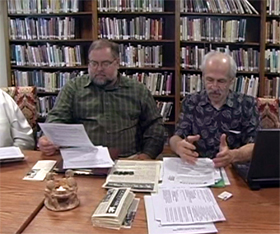 In the 1980’s I began to request volunteers from denominational agencies because I noticed a growing need for human services workers in the area. I had gotten into human services by volunteering myself through Mennonite Central Committee’s (MCC) PAX program. Specifically, I worked with people with disabilities and was an “orderly” in West Berlin, Germany for two years, instead of going to Vietnam. Having experienced a life-influencing time of voluntary service, I thought this would be an excellent opportunity for someone who might be interested in the field. However, this area was considered too wealthy and, with the concept of voluntary service fading in the US, it was increasingly difficult to find volunteers; as a result units were closing and urban area became the focus.
In the 1980’s I began to request volunteers from denominational agencies because I noticed a growing need for human services workers in the area. I had gotten into human services by volunteering myself through Mennonite Central Committee’s (MCC) PAX program. Specifically, I worked with people with disabilities and was an “orderly” in West Berlin, Germany for two years, instead of going to Vietnam. Having experienced a life-influencing time of voluntary service, I thought this would be an excellent opportunity for someone who might be interested in the field. However, this area was considered too wealthy and, with the concept of voluntary service fading in the US, it was increasingly difficult to find volunteers; as a result units were closing and urban area became the focus. I know all of the written and unwritten rules of being a Mennonite. I know what to say and when to say it. I know when it is appropriate to clap in church and even when it is permissible to say “Amen” without causing the entire congregation to turn around.
I know all of the written and unwritten rules of being a Mennonite. I know what to say and when to say it. I know when it is appropriate to clap in church and even when it is permissible to say “Amen” without causing the entire congregation to turn around.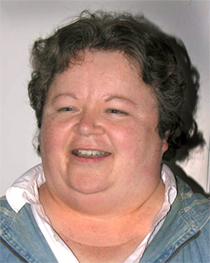 “Speak up for those who cannot speak for themselves, for the rights of all who are destitute. Speak up and judge fairly; defend the rights of the poor and needy.” Proverbs 31:8-9
“Speak up for those who cannot speak for themselves, for the rights of all who are destitute. Speak up and judge fairly; defend the rights of the poor and needy.” Proverbs 31:8-9 About 90 percent of Indonesians are Muslim and there’s a long history of conflict between the two groups. Many Indonesian Christians, including about half of the Indonesian community in South Philly, have migrated to the United States because of religious persecution.
About 90 percent of Indonesians are Muslim and there’s a long history of conflict between the two groups. Many Indonesian Christians, including about half of the Indonesian community in South Philly, have migrated to the United States because of religious persecution.
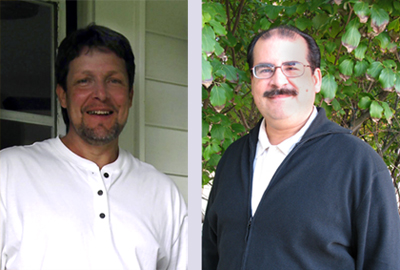 Redemptive renewal…a fully-engaged peoplehood…drawing on the best of the Anabaptist tradition…God’s unfolding reign in our midst…opening up to the world…coming together…appreciating differences…a passionate call and gifting…offering ourselves like Jesus did…
Redemptive renewal…a fully-engaged peoplehood…drawing on the best of the Anabaptist tradition…God’s unfolding reign in our midst…opening up to the world…coming together…appreciating differences…a passionate call and gifting…offering ourselves like Jesus did… 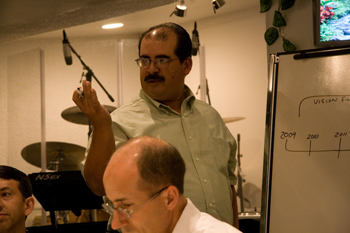 Nevertheless, Noel has been impressed with the longevity and resilience of the Franconia Conference community. “With its many up and down times, the people of Franconia have adjusted, readjusted, and refocused their efforts on that which they believed God was calling them to. I have seen and experienced this response…I have experienced Franconia opening herself up to the world…in ways that demonstrate the goodness of God in those who came before us.”
Nevertheless, Noel has been impressed with the longevity and resilience of the Franconia Conference community. “With its many up and down times, the people of Franconia have adjusted, readjusted, and refocused their efforts on that which they believed God was calling them to. I have seen and experienced this response…I have experienced Franconia opening herself up to the world…in ways that demonstrate the goodness of God in those who came before us.”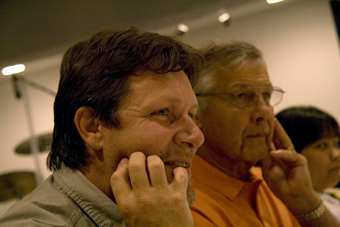 Surely this is vision for a healthy, growing Christian body, equipped to share good news in a diverse environment. May Franconia Conference, with all her strengths and weaknesses, find a part in this expanding community of God’s Kingdom.
Surely this is vision for a healthy, growing Christian body, equipped to share good news in a diverse environment. May Franconia Conference, with all her strengths and weaknesses, find a part in this expanding community of God’s Kingdom.